Expert Tips To Protect Your Mouth & Improve Overall Health
Teeth grinding, or bruxism, is a common problem affecting many people, especially at night. It’s often caused by stress, anxiety, or misaligned teeth, and can lead to a variety of dental issues, such as headaches, tooth damage, and jaw pain. If you’ve been experiencing this problem, you’re not alone.
Fortunately, several strategies can help prevent teeth grinding at night, protecting your mouth and overall health.
What Are Some Ways To Prevent Teeth Grinding While You Sleep?
Here are some tips on how to avoid this problem.
1. Wear a Custom Night Guard
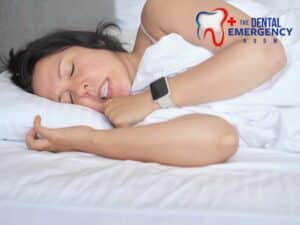
One of the most effective ways to stop grinding your teeth at night is by wearing a custom night guard. A night guard is a dental appliance that fits over your teeth and provides a protective barrier between the upper and lower teeth, preventing them from grinding against each other.
While over-the-counter mouthguards may seem like a quick fix, they often don’t provide the same level of comfort or protection as custom-made ones. A Clearwater emergency dentist can provide a custom-fit night guard that is designed specifically for your mouth, ensuring it’s both comfortable and effective.
Night guards help alleviate the pressure placed on your teeth during grinding, preventing potential damage and reducing jaw pain. Whether you’re dealing with the effects of bruxism or looking for a way to protect your teeth, visiting a trusted emergency dental clinic is an excellent first step toward finding a solution.
2. Reduce Stress & Practice Relaxation Techniques
Stress is one of the leading causes of teeth grinding. If you find yourself clenching your teeth or grinding them at night, it’s essential to address the underlying stress that may be contributing to the problem. To manage stress more effectively, consider incorporating relaxation techniques into your daily routine.
Deep breathing exercises, meditation, or even a warm bath before bed can help calm your mind and relax your body. Reducing the amount of stress in your life can significantly lower the chances of grinding your teeth while sleeping. Try to avoid stressful activities or heavy mental stimulation right before bed, as this can cause your subconscious to continue working on those concerns during the night, triggering teeth grinding.
3. Massage Your Jaw & Use Heat Therapy
If you already suffer from jaw pain or discomfort due to bruxism, massaging your jaw can help provide relief. Gently massaging the muscles around your jaw for a few minutes each day can alleviate tension and reduce the likelihood of grinding your teeth at night.
Heat therapy can also be helpful in relaxing the muscles. Applying a warm compress or using a heating pad on the jaw before bedtime can ease muscle stiffness and promote relaxation.
For optimal results, you may also want to consider a warm shower or bath before bed to relax both your mind and body. The heat from the water can help release any built-up tension in your jaw muscles, making it easier for you to get a restful night’s sleep.
4. Avoid Caffeine & Alcohol Before Bed
Both caffeine and alcohol can interfere with your sleep and contribute to teeth grinding. Caffeine, found in coffee, soda, and even chocolate, is a stimulant that can keep you awake and heighten stress levels, making bruxism worse.
On the other hand, alcohol can disrupt your sleep patterns and increase muscle tension, which can lead to more grinding throughout the night.
To improve your chances of stopping teeth grinding, try to cut back on caffeine and alcohol in the evening. Instead, opt for a calming herbal tea or warm milk, both of which can help you wind down before bed and promote relaxation.
5. Avoid Chewing On Non-Food Objects
Chewing on things like pens, pencils, or even fingernails during the day can increase the chances of grinding your teeth at night. This habit trains your jaw muscles to clench or grind, making it more likely for you to do so in your sleep. To prevent this, try to find healthier ways to keep your hands and mouth busy, such as chewing gum or munching on soft foods like bread or yogurt.
If you have the urge to chew on something non-food-related, consider switching to a stress ball or another fidget toy that can help distract you without putting unnecessary strain on your jaw. If you experience significant jaw pain or damage due to bruxism, it’s important to consult with a professional in emergency dentistry to assess any potential harm and provide the necessary treatment to prevent further issues.
6. Stay Active With Exercise & Hobbies
Regular exercise can help alleviate stress and reduce the likelihood of teeth grinding. Physical activity releases endorphins, which can help improve your mood and reduce anxiety. Even just 15 minutes of exercise a day can have a significant impact on your overall mental health, making it easier to manage the stress that may be contributing to bruxism.
Hobbies, such as painting, knitting, or reading, can also be effective in keeping your mind occupied and reducing stress. By focusing on something you enjoy, you can avoid the worry or anxiety that may otherwise lead to grinding your teeth at night.
7. Consider Hypnosis For Bruxism Relief
While it might sound unconventional, hypnosis has been shown to be an effective treatment for bruxism in some cases. Hypnosis works by training your mind to relax and break the habit of grinding your teeth while asleep. This type of behavioral therapy can help reduce the psychological factors contributing to teeth grinding, such as stress and anxiety.
If you’re interested in exploring hypnosis, consult with a professional who specializes in treating bruxism. They can guide you through the process and help you develop techniques to manage your condition more effectively.
8. Get Professional Help From An Emergency Dentist
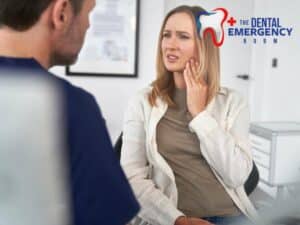
If you’ve tried several remedies but are still struggling with teeth grinding, it might be time to seek professional help. A professional can evaluate your condition and recommend more advanced treatments, such as custom night guards, dental restorations, or even Botox injections to help relax the jaw muscles.
An emergency dental clinic can also assess any damage caused by bruxism and provide solutions to protect your teeth from further harm. Don’t wait for your symptoms to worsen!
Managing & Preventing Teeth Grinding
Teeth grinding at night can be a frustrating and painful problem, but with the right approach, it can be managed effectively. From wearing a custom night guard to adopting stress-reducing habits, there are numerous ways to protect your teeth and prevent bruxism. Remember, it’s important to address both the physical and psychological aspects of teeth grinding in order to achieve lasting relief.
If you’re ready to take control of your bruxism, The Dental Emergency Room is here to help. Our team of experienced dentists in Clearwater can provide you with the care and support you need to protect your smile. Contact us today to learn more about how we can help you prevent teeth grinding and keep your dental health in check.

Dental Emergency Room
1935 Drew Street,
Clearwater, Florida 33765
Phone: 727-449-2424



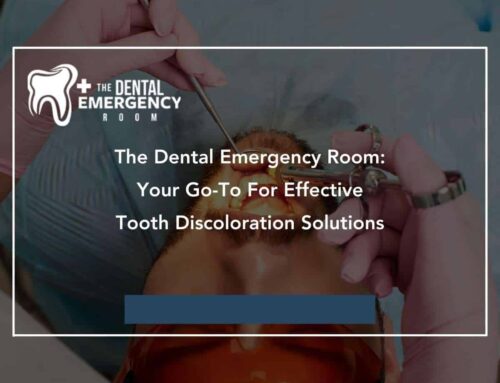
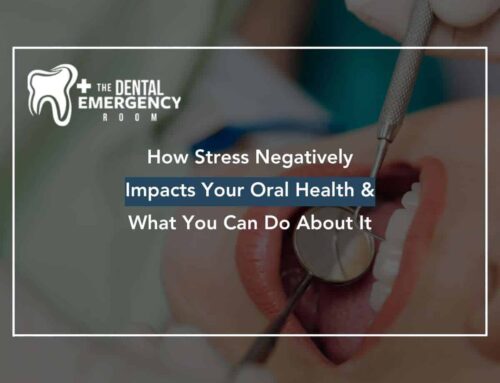
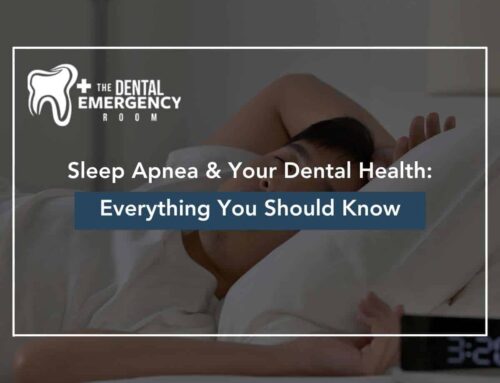


Leave A Comment